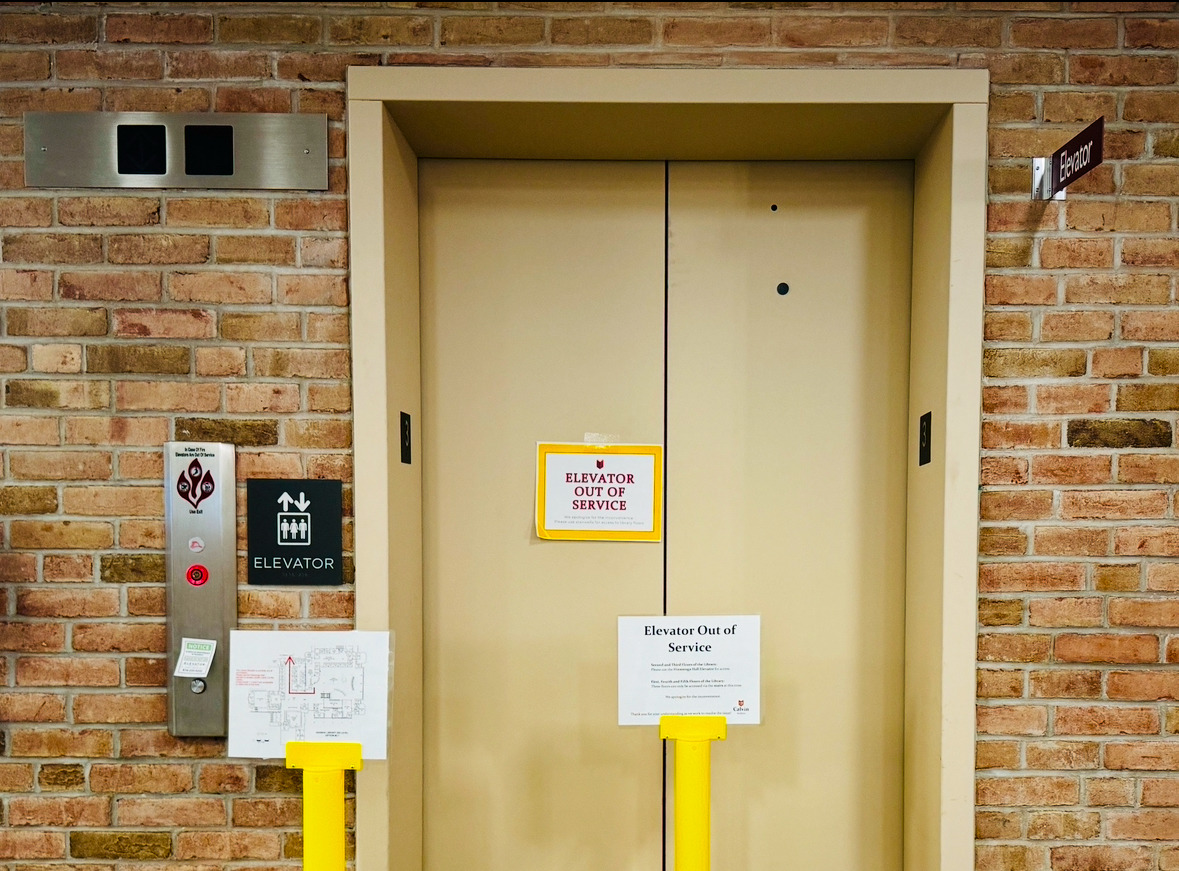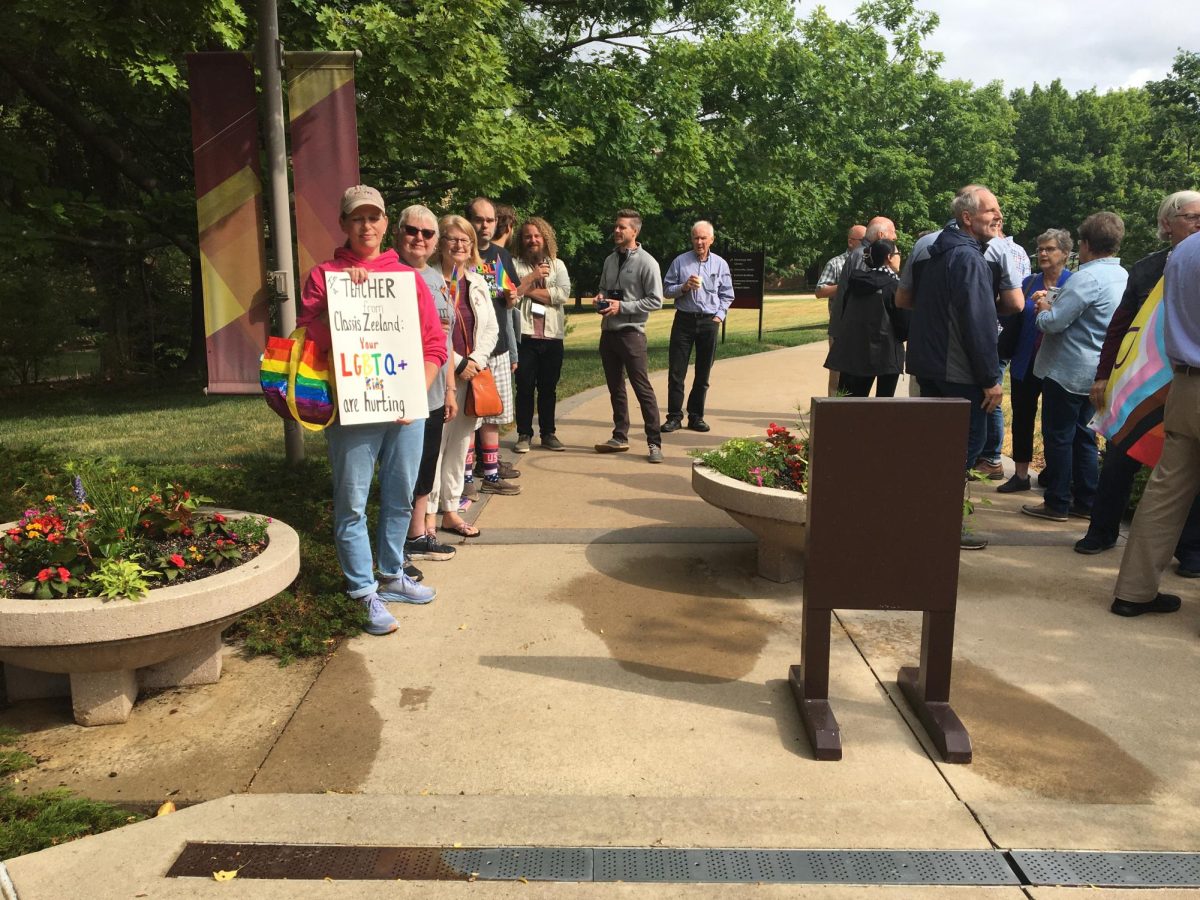On Jan. 27, Hekman Library staff announced in a Viva Engage post that the elevator in Hekman Library will be shut down for several months due to “serious mechanical issues.”
The mechanical issues, which were uncovered during routine maintenance, were described as a “catastrophic hydraulic jack failure” by Lisa Kooy, assistant director of student success, who was quoting information from facilities staff. The elevator provides the only elevator access to the fourth and fifth floor of the library. As a result, this breakdown has posed significant challenges for all who use the elevator.
Seminary student and library employee Jin Soo Park also told Chimes that the lack of elevator makes using the library more difficult for staff and students. “Each student has to carry a bunch of books within a box and then go up the flights of stairs which is very exhausting,” said Park.
“Sometimes, I’m just really tired, and I don’t wanna go up all the stairs to get to the top,” said Ben Skillen, a sophomore.
For students with disabilities, the lack of an elevator isn’t just an inconvenience but also an accessibility issue. “Going up and down the stairs repeatedly is really really difficult, especially with heavy books,” said Kayla Nazario, a student library employee who has osteochondral lesions that make the process especially difficult. (Osteochondral lesions are small tears or fractures in the cartilage covering bones in a joint.)
While the elevator shutdown might have been unavoidable, students expressed a broader need for better accessibility on campus — and frustrations with the university’s current position.
Film student Henry Donahue, involved with the Disability Inclusion Project (DIP), highlighted this disconnect, saying, “There seems to be a discrepancy between this emphasizing diversity and accessibility that Calvin kind of claims to really care about and when it comes to actually serving its students.” Continuing this, Henry Donahue expresses how Calvin University keeps providing “hollow platitudes that really do nothing to help students.”
Psychology student Amy Kuiper noted that accessible infrastructure can benefit the whole community, not just those with physical disabilities. Kuiper states, “People also have bad days, get injured and/or have other needs to use the elevator. It could be temporary, but it is useful for any amount of time, for any need,” said Kuiper.
Having accessible infrastructure also allows people with disabilities a certain degree of privacy about their conditions and abilities. Kuiper explained that “some people may have hidden disabilities;…having that [infrastructure] be visible and accessible means that somebody who has a hidden disability or maybe just doesn’t want to disclose or something like that” doesn’t have to.
While students, staff and the public appreciate the efforts made by Calvin’s Disability Services and Student Success Staff in creating an inclusive and welcoming environment, there is continued dissatisfaction with how the institution translates its promises into physical changes to campus. “The institution (Calvin) as a whole isn’t putting in the work to actually fulfill that promise that they’re making,” Donahue said.






